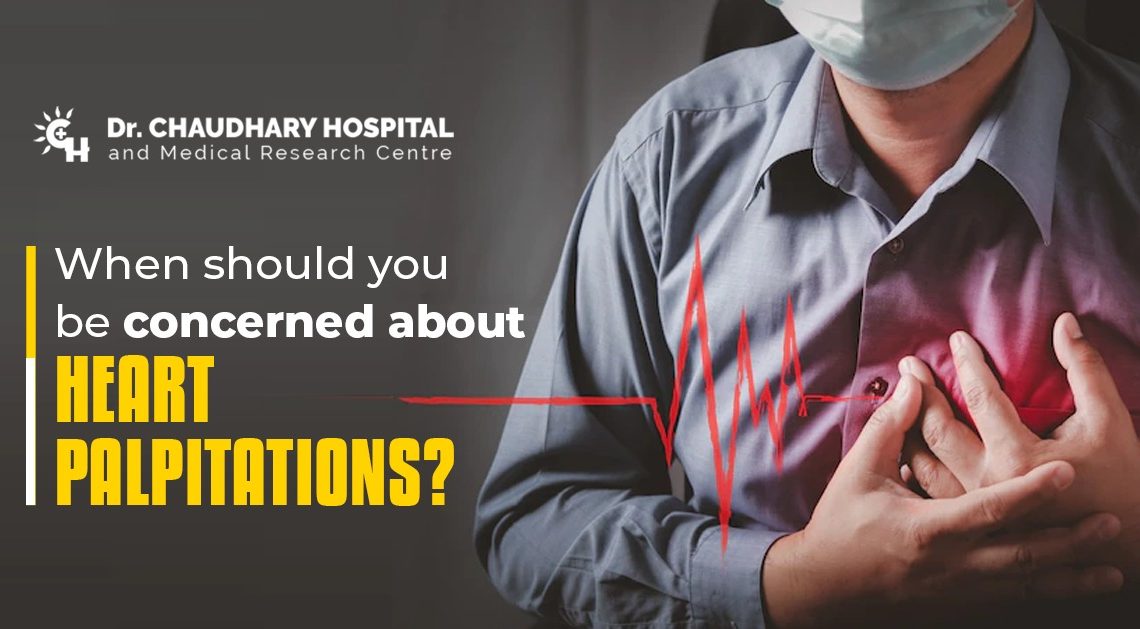The sound of your heart pumping blood to the rest of your body is sometimes referred to as “lub dub,” or the sound of your heartbeat. Your heart beats 60 to 100 times every minute, working hard to supply your body with the blood it needs to survive.
Sometimes, this rhythm can shift momentarily, and you might experience a heartbeat skipping. It is normal in certain cases or situations. This phenomenon in your body is known as heart palpitations. Heart palpitations are the flutters that occur when your heart beats quicker than usual or skips a few beats. You might also have excessive self-awareness. Palpitations typically do no harm and disappear on their own.
Heart palpitations might make you feel nervous and afraid even though they are frequent. Here are some instances in which you shouldn’t be concerned if your heart skips a beat and others in which it could be necessary to visit a doctor.
What are Heart Palpitations?
Heart palpitations are sensations of a hammering, fluttering, or rapid heartbeat. A medical condition, stress, exercise, or medicine can occasionally trigger them. Even though heart palpitations can be unsettling, they are typically not harmful. Rarely, heart palpitations may be a sign of a more severe heart issue, such as an arrhythmia, which may need to be treated.
What are the Symptoms of heart palpitations?
Palpitations can feel like the heart is:
- Beating too fast
- Flip-flopping
- Fluttering rapidly
- Pounding
- Skipping beats
Heart palpitations may be felt in the throat or neck as well as the chest. They can occur during activity or at rest.
Common triggers for palpitations
Here’s some good news if you’re concerned that your palpitations are the result of a heart condition: most palpitations are not brought on by heart-related problems. Instead, they are typically caused by:
- Exercise /Stress/Anxiety
- Drunken stimulants (caffeine)
- Nicotine cessation
- Alterations in hormones during pregnancy
- Reduced blood sugar
When to seek medical care?
Heart palpitations are typically nothing to be concerned about. Your heartbeat should return to normal once that extra cup of coffee has left your system or after you’ve had some time to recover from a strenuous workout. Heart palpitations, however, may be a sign of a more serious heart condition if they appear out of the blue and you are unable to link them to any other cause, such as:
- Heart disease
- A defective cardiac valve, such as one that is leaking or excessively thin and doesn’t allow enough blood flow
- Chest pain
- Heart attack
- Cardiomyopathy (other disorders that cause your heart muscle to become bigger, thicker, or inflexible) (other diseases that cause your heart muscle to become larger, thickened, or rigid)
- Loss of consciousness
- Difficulty breathing
- Excessive sweating
- Dizziness, lightheadedness, or the feeling that you might faint
- Confusion
- Pain or tightness in your chest
Treatment of heart palpitations
Your doctor will normally suggest one of three treatments, depending on the degree of the symptoms and the underlying reason of the palpitations:
Preventive treatment (for mild palpitations) – Try giving up smoking, excessive caffeine, and alcohol; engage in yoga and general deep breathing; get lots of sleep and exercise; and schedule “you” time on a regular basis.
Medication – Your doctor may recommend calcium channel blockers and beta blockers, both of which have a safe history, as antiarrhythmic medications. Sometimes, stronger antiarrhythmic medications that directly affect the heart’s sodium and potassium channels are needed for treatment.
Catheter ablation: To produce an arrhythmia, locate its cause, and cauterise the affected area, small wires are inserted through the leg veins into the heart. When a doctor can locate an arrhythmia in a particular area of the heart, this treatment is quite effective
Conclusion
Although palpitations can be uncomfortable, they typically don’t indicate anything severe. Palpitations can be avoided by staying away from known causes like stress, alcohol, and caffeine.
Additionally, keep in mind that each person differs, so your triggers might not be the same as those of someone else who experiences Palpitations. Try to avoid these triggers if your heart palpitations tend to occur after drinking coffee or after a particular sort of exercise.
Do not hesitate to visit your healthcare physician if you have palpitations and are concerned. The best expert on your body is you, so if something doesn’t feel right, have it examined. Your heartbeat should not make you nervous; rather, it should serve as a continual reminder of how well your heart is working.


